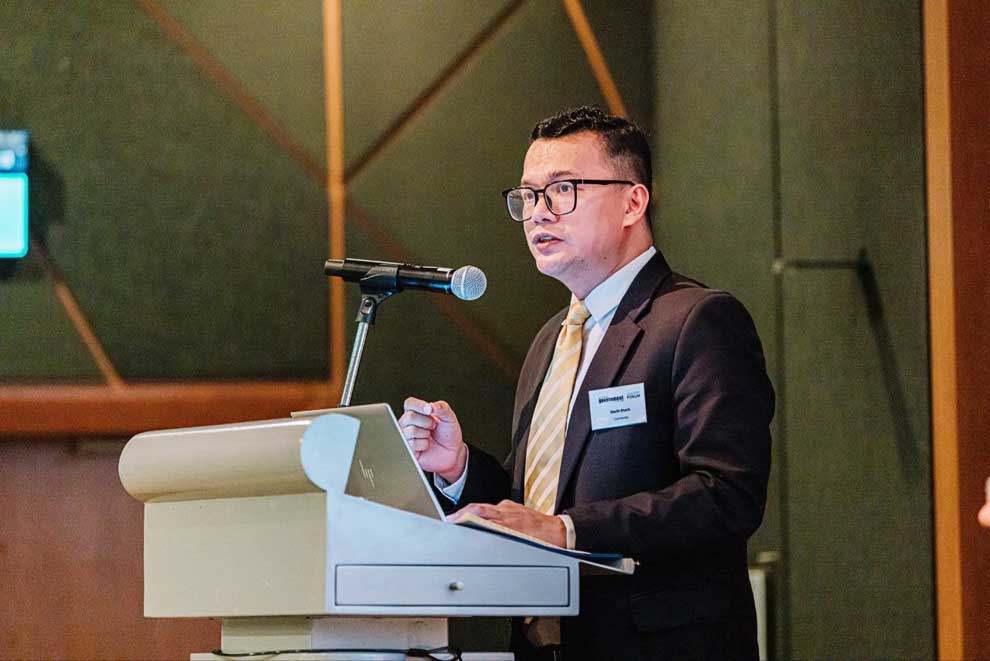
Civil service ministry undersecretary of state Duch Darin addresses the 2024 Global Government Leaders’ Forum, held in Singapore. Civil Service Ministry
Cambodia and 12 other countries recently discussed and made several key recommendations to improve civil service effectiveness and public sector productivity.
Duch Darin, an undersecretary of state for the Ministry of Civil Service who delivered a presentation at the event, said on February 4 that the Global Government Leaders’ Forum 2024, held in collaboration with the government of Singapore, provided an opportunity to exchange views on leadership perspectives, while addressing some of the common issues encountered in public service around the world.
Cambodia and the 12 other governments in attendance – Singapore, the UK, Australia, New Zealand, Ghana, Nigeria, Malta, the Philippines, Indonesia, the Cayman Islands, Azerbaijan and Estonia – produced several key recommendations for the development of civil service effectiveness.
The January 23-24 forum was held at the Singapore Civil Service College.
Darin appeared as a guest panellist in a discussion titled: “Achieving real evolution: Modern approaches to increasing productivity in the public sector”.
“In my view, a modern, global context approach to increasing productivity in the public service requires many key actions. These include improved IT systems for efficient use of data, regular training programmes that focus on innovation and the use of technology, and strong inter-agency cooperation as well as a clear understanding of local culture,” he said.
“It is also important to have diverse leadership, with a strong vision. Clear and measurable performance indicators, along with feedback mechanisms and support systems – which identify challenges and allow for improvement – are also crucial,” he added.
A February 3 statement by the civil service ministry outlined the joint recommendations of the forum attendees.
Their first point highlighted the importance of strong leadership with a clear shared vision. They also promoted digital skills training. They declared that public trust is crucial, as is the cultivation of an agile public service which can adapt when required, along with a cooperative work structure within civil service units.
They also recommended that laws, policies and a code of conduct are developed for the management of artificial intelligence (AI), while also highlighting the importance of diversity.
Hong Vanak, an economics researcher at the Royal Academy of Cambodia, described civil service as a core sector of all nations, noting the importance of ensuring that the people are served by the very best human resources available.
“The administration of Prime Minister Hun Manet wants to develop itself into a digital government, which is why he has placed a high priority on skills training and the modernisation of the civil service,” he said.
The verification.gov.kh website, administered by the Ministry of Posts and Telecommunications, won a gold medal at the February 1 ASEAN Digital Awards 2024, held in Singapore.
After being compared with 125 other digital products, services and programmes from the 10 ASEAN member states, it was adjudged the best digital solution for providing public services.
“That is one example of the efforts the seventh-mandate government has made to develop its digital information systems,” said Vanak.











